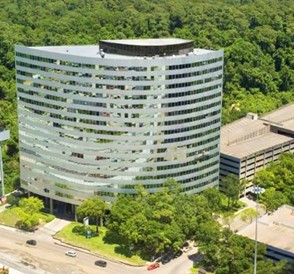Targeted Properties

Houston, Texas
Prescott acquires individual properties and portfolios of assets as well as operating and investment entities with significant property holdings. Prescott invests in a comprehensive range of real estate asset classes in the U.S. and internationally and brings extensive experience and a thorough understanding of market returns and operating performance across multiple property sectors to each investment considered. Prescott acquires office, industrial, retail, hospitality and residential properties, as well as land held for future development.

San Francisco, California
Each sector of the property market is subject to unique constraints and opportunities relative to market performance. In considering investments in income producing properties, Prescott evaluates significant factors in each asset’s ability to generate attractive risk adjusted returns, including the near and longer term supply and demand characteristics of the marketplace; an asset’s specific location relative to its target market; its potential for appreciation and redevelopment; the character and economic terms of its tenancy or business base; its physical condition and adaptability to upgrading or reuse; and the effectiveness and cost of property management. These considerations allow Prescott to properly evaluate an asset’s market position and pricing relative to current and projected future value as well as to other appropriate parameters in addition to an asset’s anticipated ability to generate attractive ongoing returns. Prescott is willing to invest counter-cyclically, but only acquires assets if they have appealing return characteristics and are appropriately priced relative to the market and underlying value. Prescott continues to see attractive opportunities to acquire properties in multiple property sectors.

Basking Ridge, New Jersey
The global pandemic created significant disruption in the international property markets, the effects of which are still being felt. The residual impact of the pandemic continues to vary widely by property type and market. The office sector is among the most significantly affected. The prognosis for the office sector, and particularly multi-tenant properties, remains unclear. For example, occupancy of office space in Manhattan remains significantly below pre-pandemic levels, especially for all but the highest quality properties, and the timing and form of the market’s eventual recovery is uncertain. Across commercial real estate sectors, industrial space remains highly prized as the trend toward e-commerce continues unabated and corporate warehouse, distribution and logistics facilities are all in demand. While parts of the retail sector continue to be troubled, other areas have begun a discernible recovery as marginal inventory has been eliminated from the market and retailers have refined their focus. (The sector’s significant disruption and challenges pre-dated the pandemic and were merely accelerated by the public health crisis.) While the hospitality sector saw a dramatic and immediate impact from the pandemic, its pathway back has been more predictable and, in some sectors such as select service and resort properties, has already occurred. The residential sector, particularly multi-family apartment properties and for-rent single-family houses, remains a desired component of both institutional and private investment portfolios. In addition to more traditional asset classes, multiple new investment sectors have offered significant opportunities in recent years. These include data centers, life science and medical office developments, student housing, self storage facilities, cold storage warehouses, senior living facilities, manufactured housing projects, airport parking structures and industrial outdoor storage. All have unique physical characteristics as well as operational requirements.

New York, New York
While the impact of public health concerns and their economic impact have begun to diminish, divisive political issues have remained unresolved and many industries have continued to undergo disruption and sweeping transformational change. Many real estate investors have experienced difficulty developing a coherent strategy to achieve attractive risk adjusted returns on a programmatic basis. Transaction volume in most North American property markets remains below pre-pandemic levels. Despite these challenges, the longer term economic and social effects of the pandemic and, specifically, their impact on property investment, are becoming clearer.
